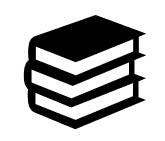Psychology: Books
New items in the Library
-
New items for Psychology
 View new books and eBooks in the Library
View new books and eBooks in the Library
Finding books
Find books and eBooks in our collections using Library Search | Ketu.
Can't find something on the shelf? Having trouble with accessing an eBook? Ask your friendly Library staff for help.
-
Library Search | Ketu This link opens in a new windowLibrary Search | Ketu provides fast, simple, one-step searching across the University of Otago Library's resources. It is designed to make it quick and easy to begin researching a topic
-
InterloansIf the Library doesn't hold the book or article that you need, request it via Interloan and Library staff will request it from another institution.
-
Recommend a bookIf there a book or other item you'd like to see in the Library's collection, submit a recommendation request. We will investigate acquiring materials that you would find useful to your research and learning.
Open access textbook collections
-
MERLOTBrowse multiple open textbooks in the Psychology section.
-
Open Textbook LibraryHas a number of Psychology texts on a range of research areas.
-
Pressbooks DirectoryA free, searchable catalog of open textbooks.
- Last Updated: Nov 4, 2025 11:38 AM
- URL: https://otago.libguides.com/psychology
- Print Page